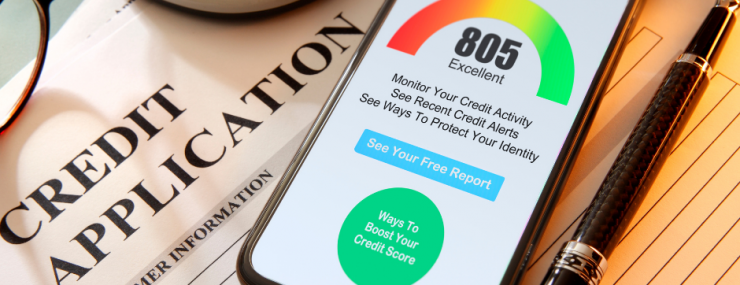
Choosing a lender isn’t the first step in becoming a homeowner. In reality, the home buying process begins and ends with your finances. To propel your dreams of homeownership forward, considering your credit score is a must along with the type of loan for which you’ll qualify in Durham.
The Fair Isaac Company bases your FICO score on the summary of your total credit history. The score ranges from 300 to 850, with most people traditionally having a score of 650. Since we’ve experienced an economic downturn, however, some borrowers have seen their score drop dramatically after unemployment, charged off credit card accounts, or credit card accounts closed by the lender due to inactivity. Some of the factors in determining your FICO score are:
- Credit Inquiries — Do you have too many open accounts?
- Types of Credit — Do you have a healthy mix of credit cards and loans?
- Payment History — How often do you make late payments?
- Credit to Debt Ratio — How much do you owe versus how much credit you have available?
When you apply for a mortgage or any other loan, lenders want to make sure that extending a loan to you isn’t a problem. Your FICO score gives lenders an insight into what type of borrower you are solely because of your credit history. You’ll need a score of at least 700 to get a satisfactory interest rate. If your score is less than that, you can still qualify for a loan, but the interest paid over the life of the loan could be more than double the amount of someone having a stronger credit score.

Seagroves Agents can work with all tiers of FICO scores and can help you step into homeownership with the best lending institution for you. Contact an agent or call 919-317-1115 for more information.
Credit Score Improvement Tips
Pay on Time
Your FICO score plummets with every account that goes to collections. It’s where people who have recently experienced job loss see the biggest hit in their credit score. Yes, it takes longer to rebuild your credit with payment history, but it’s the surest way to show that you’re responsible enough to make payments to a bank.
Ensure that Your Credit History is Correct
If you find mistakes on your credit report, contact the bureau requesting that the item be removed. If you have a common name or the same name as a family member, you’ll want to give extra care to make sure the activity reported is correct.
Spread Your Debt Around
At first, this doesn’t seem like a good idea. But, you don’t want to have one card that is at the limit and have the rest of your cards at a zero balance. It’s better to have each of your cards at about 25% of their credit limit than to have the majority of your debt sitting on one card.
Chain Store Cards and Service Station Cards
For those who have non-existent credit or low credit, chain store credit cards and gas credit cards are ways to start your credit history, increase your credit limits and keep up your payments, which will raise your credit. You should always avoid keeping a large balance for too long because these types of cards normally have a larger interest rate.
Use Your Credit
Whether you have older cards or are just getting started with credit, be sure to use your cards so that your accounts maintain an active status. But, pay them off in no more than two or three payments.
